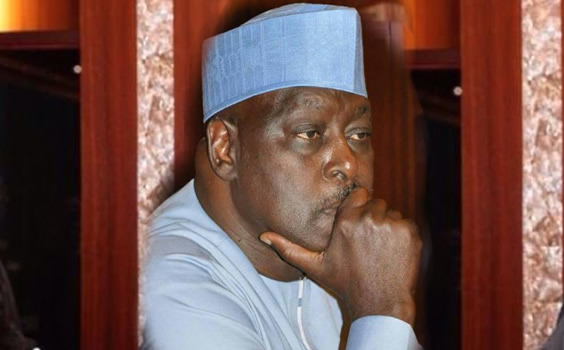The High Court of the Federal Capital Territory in Abuja on Thursday rejected the forensic report presented by the Economic and Financial Crimes Commission in the trial of the former Secretary to the Government of the Federation, Babachir Lawal.
Justice Charles Agbaza, while delivering the ruling on an objection raised by the defence counsel on the admissibility of the documents, held that the forensic report and the other computer-generated documents violated the provisions of the Evidence Act, 2004.
The PUNCH had earlier reported that the former SGF, alongside his younger brother and a director in his company, Hamidu Lawal; a staff in the company, Sulaiman Abubakar; the Managing Director of Josmon Technologies Limited, Apeh Monday; and two companies, Rholavision Engineering Limited, and Josmon Technologies Limited, were sued by the EFCC.
The EFCC had brought 10 charges against the defendants bordering on conspiracy and unlawful award of N544 million contract to companies Lawal had an interest in.
The counsel of the EFCC, Ofem Uket, had sought to tender a forensic report that was retrieved from the phone of one Musa Bulani to prove the charge against Lawal and the others.
However, the counsel to the former SGF, Akin Olujimi SAN, raised an objection and asked the court not to admit the documents on the ground that the source fell short of Sections 84 and 256 of the Evidence Act, 2014.
According to him, the documents were printed hardcopy of the compact disc, which was not the original source.
He argued that the phone was the original source and thus, the extracted document was not marked as a certified true copy.
Olujimi also stated that the EFCC hacked into the said phone to come up with the document it intends to tender in court and failed to follow due process in obtaining it.
He argued that electronically generated evidence must be accompanied by a certificate signed by the maker in order for it to be admitted into evidence.
In view of this, Olujimi urged the court to reject the document sought to be tendered.
The counsel to the other defendants aligned themselves with Olujimi’s submission and adopted it as their argument in the instance.
In his reply to the objection raised concerning the admission of the document, the prosecution counsel argued that issuing a certificate was unnecessary, stating that a witness had testified in court and presented the original documents.

